Imagine standing atop a mountain, breathing in crisp air, and feeling on top of the world – literally. That’s the magic of hiking, a simple yet profound activity that’s been gaining traction among fitness enthusiasts and nature lovers alike. But hiking isn’t just about breathtaking views and Instagram-worthy moments. It’s a powerhouse of health benefits that can transform your life in ways you might not expect.
In this article, we’ll explore the 9 benefits of hiking that’ll make you want to lace up your boots and hit the trails pronto. Whether you’re a seasoned trekker or a newbie to the outdoor scene, you’ll find plenty of reasons to fall in love with this incredible activity.
1. Physical Fitness That Doesn’t Feel Like Work
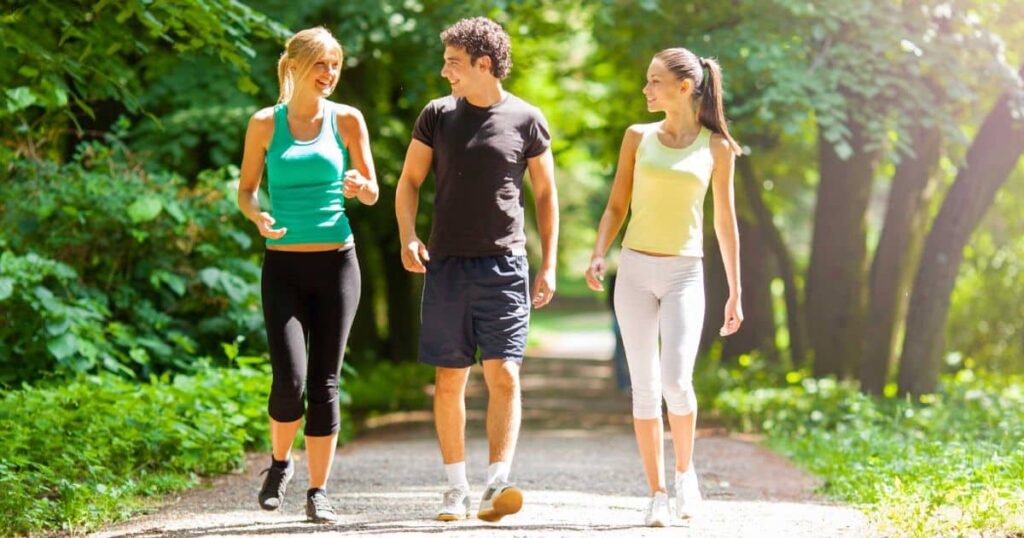
How Hiking Torches Calories
Let’s face it – the treadmill can get boring. But hiking? It’s like the fun cousin of cardio workouts. You’re so busy taking in the scenery and conquering that next hill that you hardly notice you’re exercising. And boy, does it burn calories!
A 155-pound person can torch anywhere from 223 to 558 calories per hour while hiking, depending on the terrain and intensity. That’s comparable to jogging or swimming, but with the added bonus of fresh air and ever-changing views.
Building Strength and Endurance on the Trail
Hiking isn’t just about burning calories. It’s a full-body workout that builds strength and endurance. Those uphill climbs work your glutes, quads, and calves, while navigating uneven terrain engages your core and improves balance. And let’s not forget your upper body – using trekking poles or scrambling over rocks gives your arms and shoulders a workout too.
“Hiking is the perfect combination of physical exercise, stress relief, and a chance to reconnect with nature.” – John Muir
2. Mental Health Boost: Nature’s Antidepressant
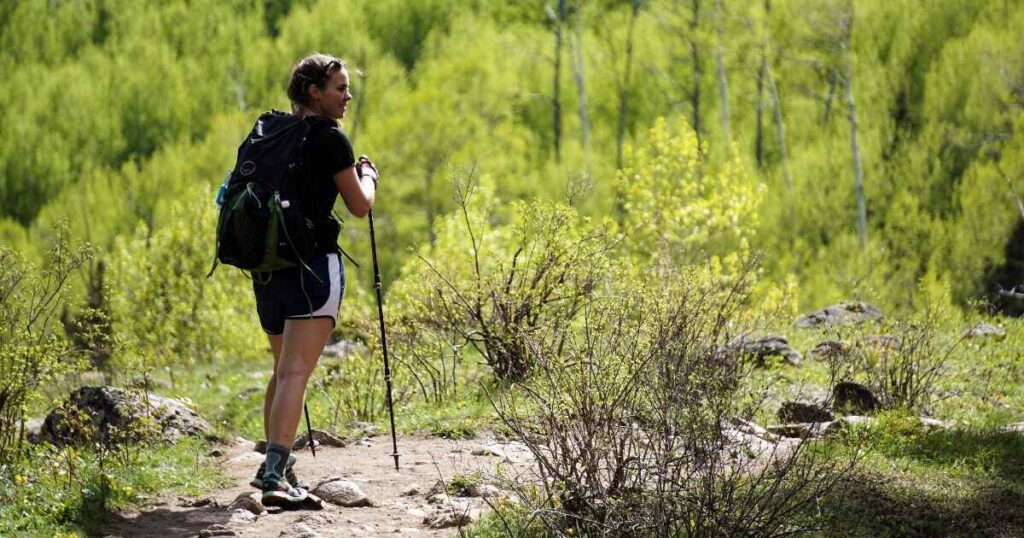
Reducing Stress and Anxiety Through Hiking
In our fast-paced, technology-driven world, stress and anxiety have become unwelcome companions for many. Enter hiking – nature’s own antidepressant. Studies have shown that spending time in nature can significantly reduce cortisol levels (the stress hormone) and improve mood.
A 2015 study published in the Proceedings of the National Academy of Sciences found that a 90-minute walk in a natural setting decreased negative thinking and reduced neural activity in an area of the brain linked to risk for mental illness.
The Mindfulness of the Great Outdoors
Hiking offers a unique opportunity for mindfulness. The rhythmic sound of your footsteps, the feel of the wind on your skin, the scent of pine needles – all these sensory experiences anchor you in the present moment. It’s like meditation in motion, helping to clear your mind and boost your overall mental well-being.
3. Improved Heart Health: Hiking Your Way to a Stronger Ticker
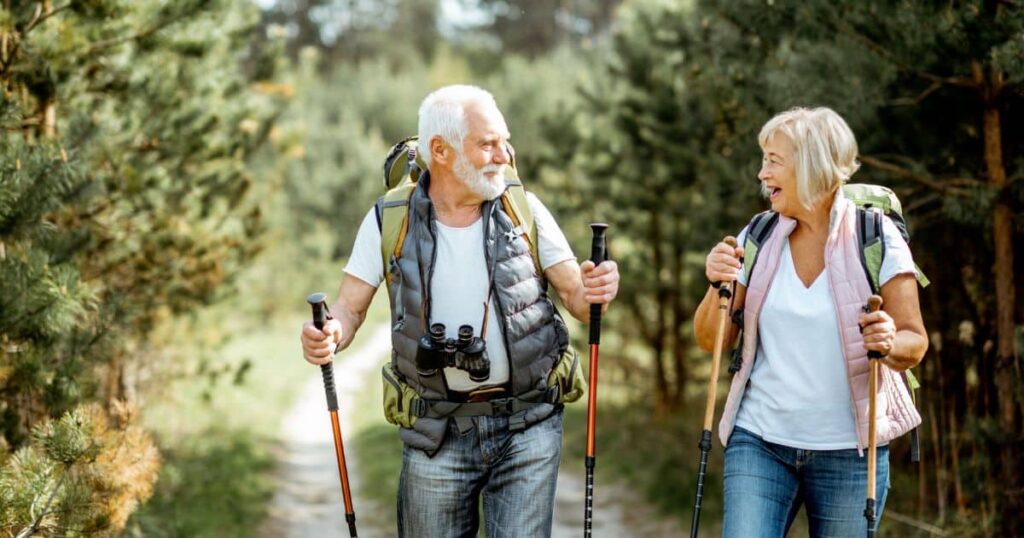
Cardiovascular Benefits of Regular Hikes
Your heart loves a good hike. Regular hiking can improve your cardiovascular fitness, reducing the risk of heart disease, stroke, and high blood pressure. It’s an excellent form of aerobic exercise that gets your heart pumping and improves circulation.
Lowering Blood Pressure, One Step at a Time
A study published in the American Journal of Hypertension found that just 30 minutes of walking in nature can significantly lower blood pressure. Imagine what a few hours on the trail could do!
Table: Cardiovascular Benefits of Hiking
| Benefit | Description |
| Improved heart rate | Regular hiking can lower resting heart rate |
| Better blood pressure | Can help reduce both systolic and diastolic blood pressure |
| Increased endurance | Improves overall cardiovascular endurance |
| Reduced risk of heart disease | Regular hiking can lower risk factors for heart disease |
4. Bone Density and Balance: Hiking for Longevity
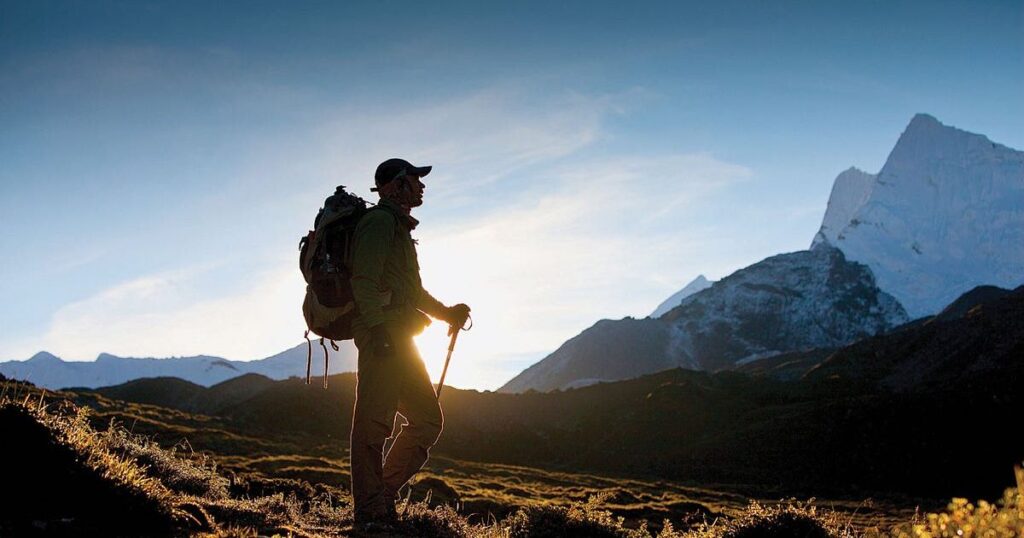
Weight-Bearing Exercise and Your Bones
Hiking is a weight-bearing exercise, which means it’s great for your bones. As you walk, especially uphill, you’re working against gravity, which stimulates bone formation and helps prevent osteoporosis.
Enhancing Balance and Reducing Fall Risk
Navigating varied terrain – from rocky paths to root-covered trails – challenges your balance and proprioception (your body’s ability to sense its position in space). This not only improves your overall balance but can also reduce your risk of falls as you age.
Read This Post: Hiking for Beginners
5. Creativity and Problem-Solving: Think on Your Feet
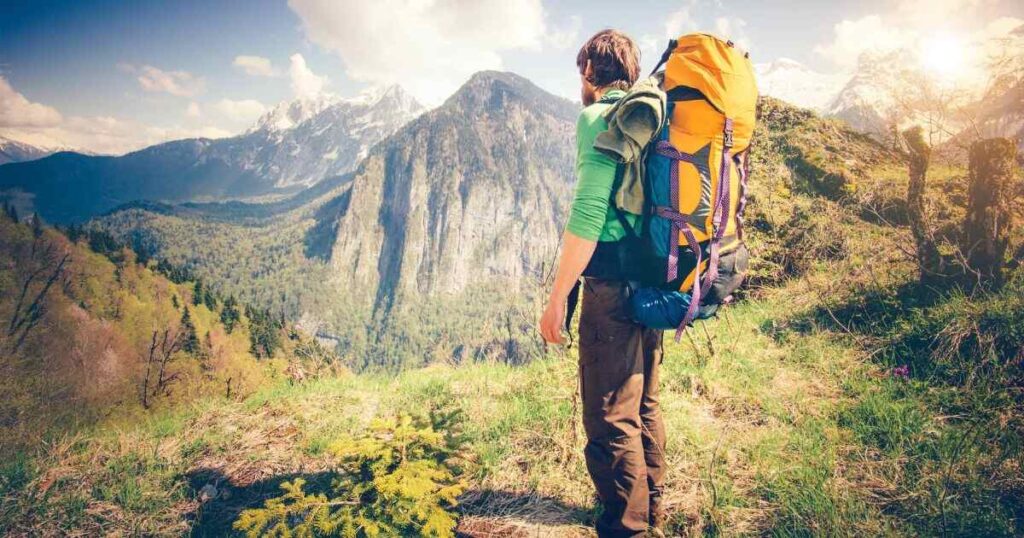
How Nature Sparks Innovation
Ever notice how your best ideas seem to come when you’re away from your desk? There’s science behind that. A study by psychologists from the University of Utah and University of Kansas found that backpackers scored 50% better on creative problem-solving tasks after spending four days in nature disconnected from electronic devices.
Unplugging for Mental Clarity
In our hyper-connected world, hiking offers a rare opportunity to unplug. This digital detox can clear mental clutter, allowing for deeper thinking and enhanced creativity. It’s not uncommon for hikers to report breakthrough ideas or solutions to long-standing problems while on the trail.
6. Social Connections: Hiking Buddies and Trail Friends
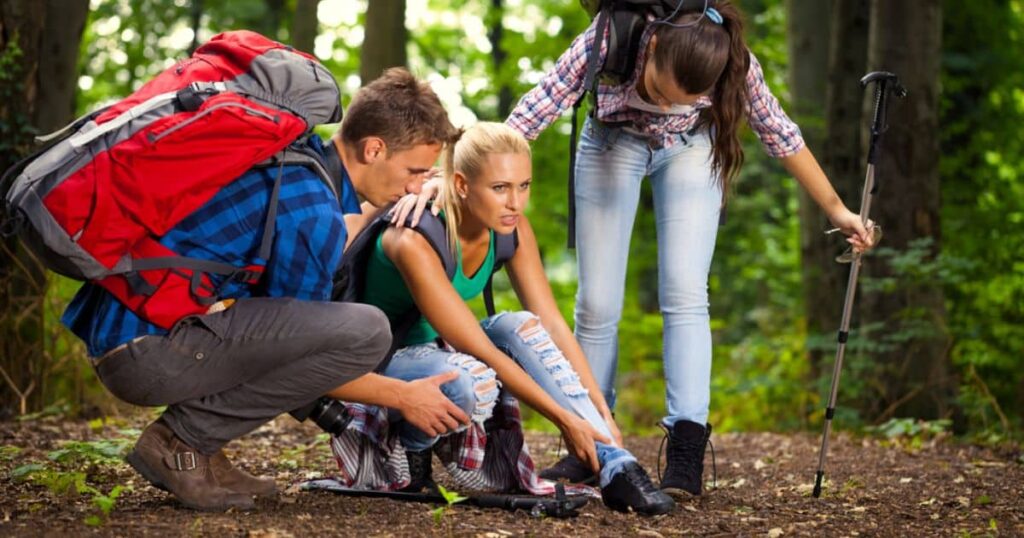
Building Relationships on the Trail
Hiking can be a deeply social activity. Whether you’re chatting with a friend as you tackle a steep incline or sharing a granola bar with a fellow hiker at a scenic overlook, the trail provides ample opportunities for meaningful connection.
Joining Hiking Groups and Communities
The hiking community is welcoming and diverse. Joining a local hiking group or online community can introduce you to like-minded individuals, fostering new friendships and a sense of belonging. These connections can extend beyond the trail, enriching your social life in unexpected ways.
7. Environmental Awareness: Hiking Towards a Greener Future
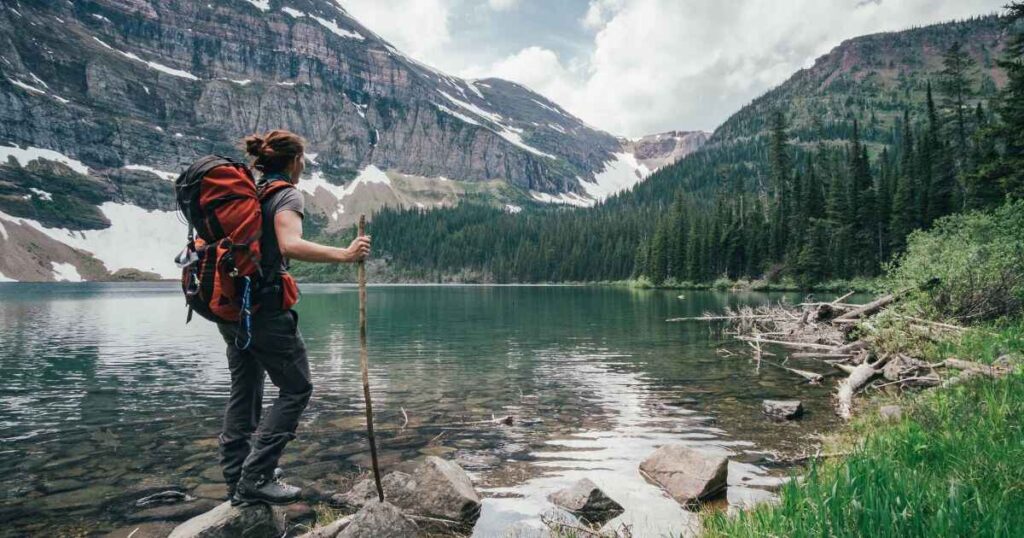
Developing a Connection with Nature
There’s something about being in nature that fosters a deep connection with the environment. As you hike, you witness firsthand the beauty and fragility of natural ecosystems. This personal experience often translates into a greater commitment to environmental conservation.
Inspiring Conservation Efforts
Many hikers become passionate advocates for nature conservation. Whether it’s participating in trail maintenance, supporting local conservation efforts, or simply practicing Leave No Trace principles, hiking often inspires a more environmentally conscious lifestyle.
8. Budget-Friendly Fitness: Hiking’s Economic Appeal
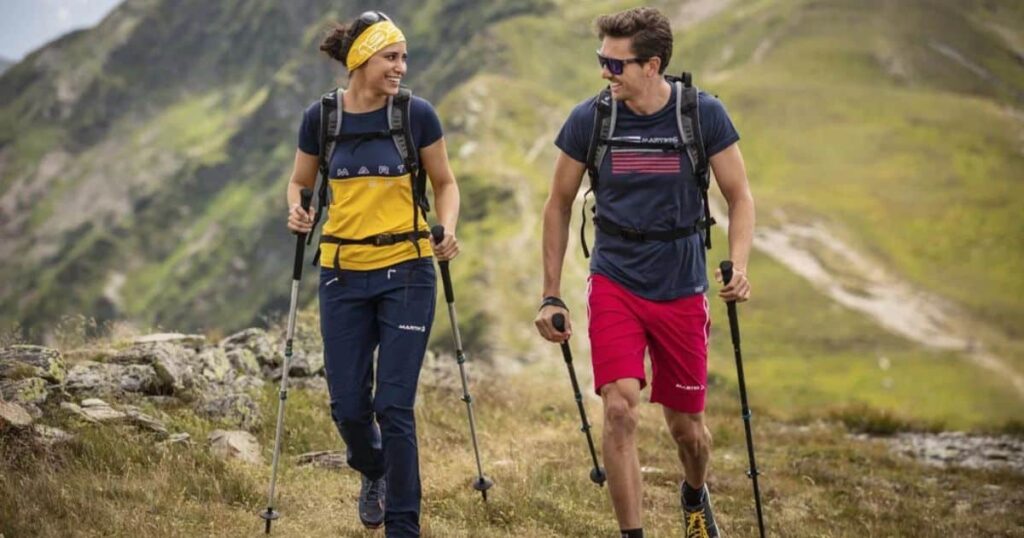
Comparing Hiking Costs to Gym Memberships
While gym memberships can put a dent in your wallet, hiking is remarkably cost-effective. Once you’ve invested in some basic gear, most trails are free to access. Let’s break down the costs:
Table: Hiking vs. Gym Membership Costs
| Expense | Hiking (Annual) | Gym Membership (Annual) |
| Initial Cost | $200-$500 (gear) | $0-$100 (sign-up fee) |
| Monthly Fee | $0 | $30-$100 |
| Annual Total | $200-$500 | $360-$1300 |
Free Natural Gyms in Your Area
Many urban and suburban areas have hiking trails right in their backyards. City parks, state forests, and national parks offer a variety of trails suitable for different fitness levels. These “natural gyms” are not only free but also provide constantly changing scenery and fresh challenges.
9. Vitamin D Boost: Sunshine and Health on the Trail
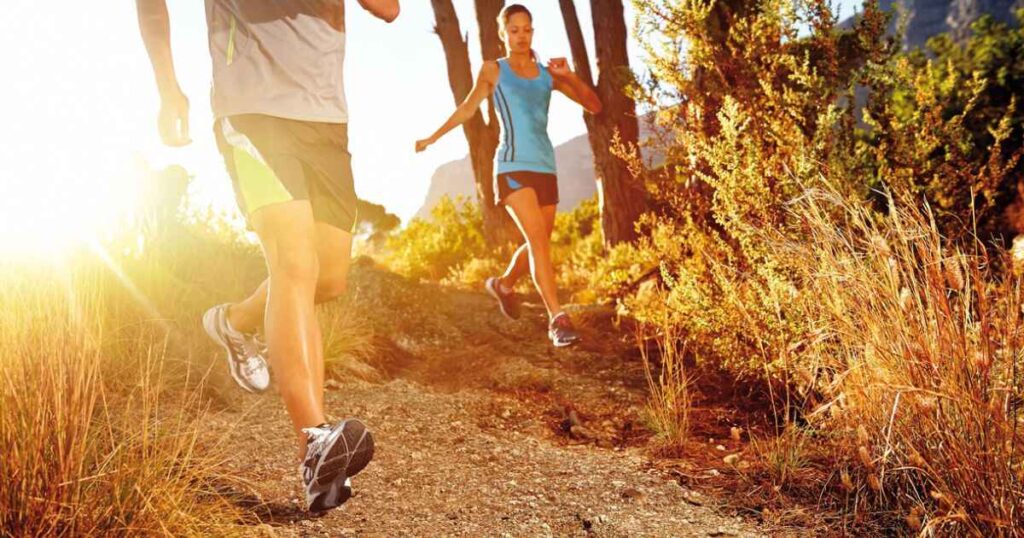
The Importance of Vitamin D
Vitamin D, often called the “sunshine vitamin,” is crucial for bone health, immune function, and mood regulation. While you can get it from food sources, sunlight is the most efficient way for your body to produce this vital nutrient.
Safe Sun Exposure While Hiking
Hiking provides an excellent opportunity to soak up some rays and boost your vitamin D levels. However, it’s important to practice safe sun exposure:
- Hike during early morning or late afternoon to avoid peak UV hours
- Wear a broad-spectrum sunscreen on exposed skin
- Don a wide-brimmed hat and UV-protective clothing
- Take breaks in shaded areas
FAQs
How often should I hike to see health benefits?
Even hiking once a week can provide significant health benefits. Aim for at least 150 minutes of moderate-intensity exercise per week, as recommended by health professionals.
Is hiking suitable for all fitness levels?
Yes! There are trails for every fitness level, from easy nature walks to challenging mountain treks. Start with easier trails and gradually increase difficulty as your fitness improves.
What gear do I need to start hiking?
Basic essentials include comfortable hiking shoes, moisture-wicking clothing, a backpack, water, snacks, and sun protection. As you progress, you might invest in trekking poles, a GPS device, or more specialized gear.
Can hiking help with weight loss?
Absolutely! Hiking burns calories and builds muscle, making it an excellent activity for weight management when combined with a healthy diet.
Are there any risks associated with hiking?
While hiking is generally safe, risks can include injuries from falls, getting lost, encounters with wildlife, and exposure to extreme weather. Always research your trail, tell someone your plans, and be prepared with appropriate gear and knowledge.
Conclusion
As we’ve explored, the benefits of hiking extend far beyond just physical fitness. From boosting mental health to fostering social connections and environmental awareness, hiking offers a holistic approach to well-being that’s hard to match.
So, why not give it a try? Start small with a local nature trail, or challenge yourself with a more demanding hike. Whatever path you choose, remember that each step is a step towards better health, both for you and for the planet.